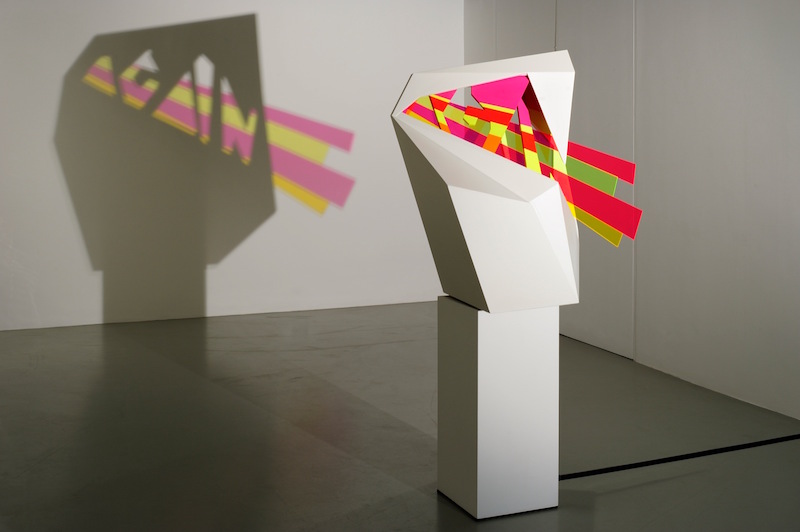The German artist Tobias Rehberger has found himself at the center of an ongoing legal dispute between a bank and the erstwhile co-owners of a Frankfurt nightclub.
Four years ago, WestInvest, the real estate subsidiary of the Deka Bank, shut down the dance music venue NuSoul after the owners Ysheitla and Mengstu Zeleke came into arrears with their rent.
The brothers allege that WestInvest discarded or sold off the club's interior and fixtures, which also included an installation by Rehberger. They are seeking €3 million ($3.3 million) in damages for the artwork, although Rehberger confirmed that he had given the Zelekes the piece as a gift.
The artwork in question was a set of chairs Rehberger designed for the nightclub in his signature colorful, striped style and which had been specially arranged to form a smoking section.

Tobias Rehberger Untitled (2011)
Photo: Pilar Corrias, London
Photo: Pilar Corrias, London
According to while the club's furniture was acquired by several other nightclub owners and now decorates a number of bars and discotheques in the city center, Rehberger's artwork ended up in the garbage.
The artist was outraged, and eventually received an apology from the bank following national media coverage of the ungraceful disposal of his installation piece.
The brothers' first attempt in 2014 to However, they said they said they felt "relaxed" about the upcoming trial at the Frankfurt Court of Appeals.

The DekaBank has pledged to make a donation to a cultural institution.
Photo: Wikimedia Commons
Photo: Wikimedia Commons
At a conciliation appointment in August 2015, the judge suggested that Deka Bank should make a donation to compensate for the destruction of Rehberger's artwork.
The case seemed to be settled when the Zelekes welcomed the suggestion and the bank's lawyer hinted that such an agreement would also be in the interest of his client.
Yet after several months of silence, the bank announced “Deka notified the court and the opposing party in August that we will not reach a settlement because we want the plaintiff's false allegations to be clarified and resolved in court." The bank added that it would still make a donation to a Frankfurt cultural institution nevertheless.
And so the case continues, and Rehberger has been called as a witness at the trial which starts next week. The star artist's works are in demand across the world, and ironically, the Deka Bank also has a number of his works in its corporate collection.
Printing Women: Three Centuries of Female Printmakers, 1570–1900
Physically demanding and technically challenging, printmaking has often been considered man’s labor. As the Library’s unusual collection by forward-thinking Henrietta Louisa Koenen (1830-1881) demonstrates, engravings, etchings, woodcuts and lithographs executed by female printmakers have been around almost as long as artists started creating prints in the late fifteenth century. From 1848 until 1861, she collected an astonishing array of sheets by women artists from the sixteenth to nineteenth centuries. Executed by experts and amateurs alike, these women pursued their craft as part of larger family workshops, as a means of self-realization and for the thrill of making and sharing pictures created in multiples.Exhibited for the first time since 1901, the works from Henrietta Louisa Koenen’s collection include not only well-known artists like Angelica Kauffmann (1741-1807) and Maria Cosway (1760-1838), but also rare and unusual prints by the Marquise de Pompadour (1721-1764), Charlotte Napoleon (1802-1839), and Queen Victoria (1819-1901).
No comments:
Post a Comment